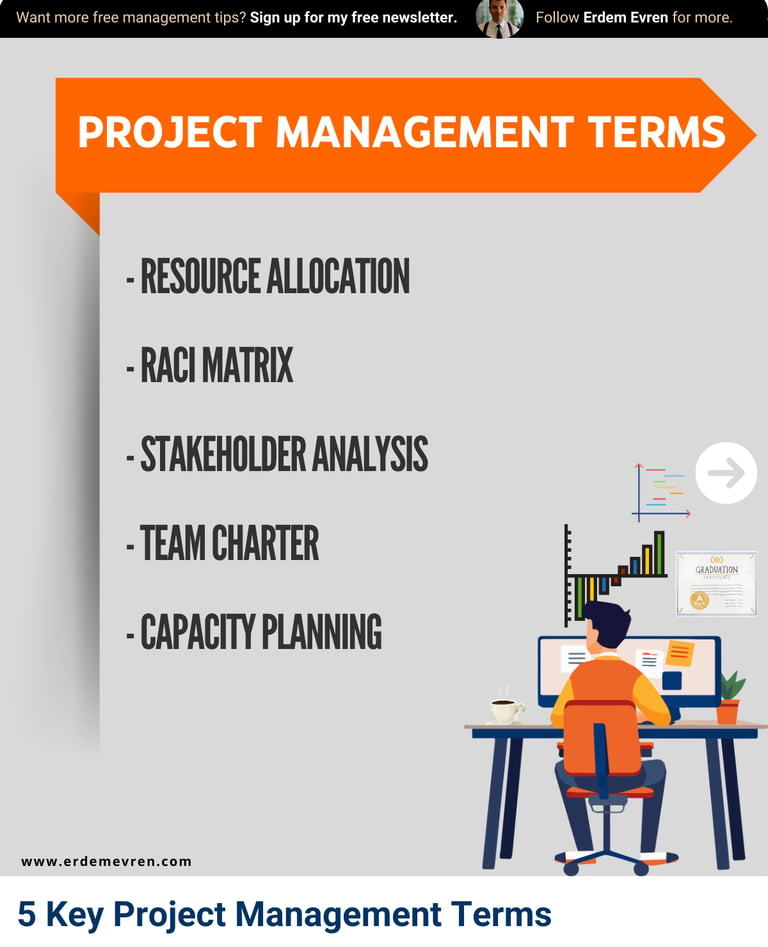Essential Project Management Terms
Concise yet insightful!


Ever felt like your construction projects are stuck in a never-ending cycle of delays and miscommunication? You’re not alone. Many project managers struggle with keeping everything on track, but it doesn’t have to be that way. By mastering these 5 essential project management concepts, you can turn chaos into clarity and keep your projects running smoothly from start to finish.
1️⃣ Resource Allocation – The process of strategically assigning resources—whether it’s manpower, equipment, or materials—plays a key role in maintaining project momentum. Without effective resource allocation, even the best-planned projects can face bottlenecks. It’s about balancing availability with project needs, ensuring that you never have too much or too little of what’s required.
2️⃣ RACI Matrix – Miscommunication and confusion about responsibilities can cause delays and mistakes. The RACI (Responsible, Accountable, Consulted, Informed) Matrix provides a clear framework to define who does what. This tool not only clarifies roles within the team but also helps prevent overlap in decision-making, allowing projects to flow more smoothly. Clear communication reduces the risk of tasks falling through the cracks.
3️⃣ Stakeholder Analysis – Every project has multiple stakeholders, from clients and investors to contractors and regulatory bodies. Identifying these stakeholders early and understanding their needs, expectations, and influence allows you to manage their impact on your project effectively. Stakeholder analysis helps anticipate issues, prioritize concerns, and keep everyone aligned toward the project’s goals.
4️⃣ Team Charter – A team charter isn’t just a document—it’s a roadmap for team success. It outlines the team’s goals, values, roles, and ground rules for how the team will function together. When a team charter is established early, it sets the tone for collaboration and productivity, helping team members understand how to contribute effectively and what’s expected of them. It’s particularly useful in maintaining focus during challenging phases of a project.
5️⃣ Capacity Planning – Effective capacity planning ensures that you have the right resources available when needed without overburdening your team. It involves analyzing the workload and ensuring the team’s skills align with the project demands. Inadequate capacity planning can lead to delays, increased costs, or even burnout. Planning for future capacity needs also allows you to scale resources as projects evolve.
